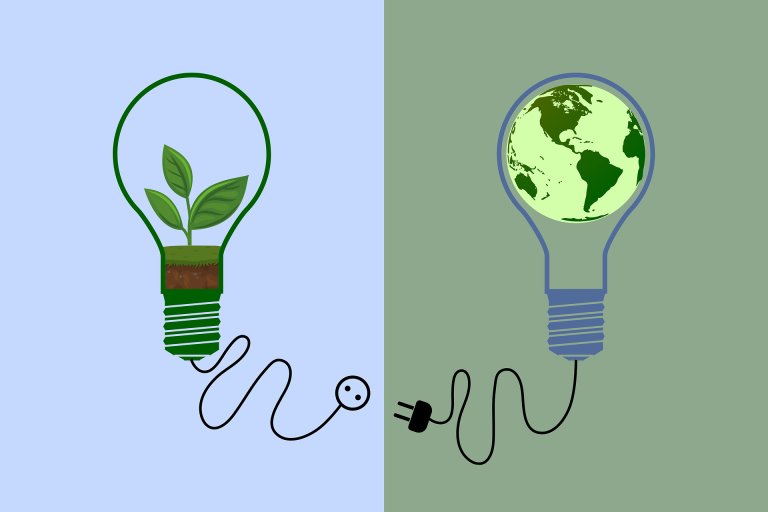Teaching sustainability in the Industrial Engineering and Digital Economics degree programs
With their positioning at the interface between business and technology, the degree programs at the KIT Department of Economics and Management are ideally suited for teaching content on the sustainable development of society.
The teaching content of the KIT Department of Economics and Management on economic, digital and social aspects of sustainability is ideally complemented by
- Engineering courses in the Bachelor's and Master's degree programs in Industrial Engineering and Management
- Computer science content in the Bachelor and Master of Information Systems (offered together with the KIT Department of Informatics)
- economic and social science content in the Bachelor's and Master's degree programs in Digital Economics
- Mathematical courses in the Master's program in Business Mathematics

What is ESD?
ESD is the abbreviation for Education for Sustainable Development. The aim of the initiative is education that enables people to think and act in a sustainable way. The aim is to enable each individual to understand the impact of their own actions on the world.
On June 20, 2017, the National Platform on Education for Sustainable Development adopted the National Action Plan for the Implementation of the UNESCO Global Action Program on Education for Sustainable Development (2015-2019).
There are also numerous national and global programs and initiatives.
Current ESD courses at the Wiwi-Faculty
|
|
Business Administration (incl. Operations Research) |
Computer Science and Information Systems | ECONOMICS | |
|---|---|---|---|---|
|
Lectures and seminars with a focus on ESD |
|
|
|
|
|
ESD topics that are addressed in other lectures and seminars |
|
|
|
|
| Team projects |
Regular offer of team projects related to sustainability in the module "Team Project Business & Technology" |
|||
* No claim to completeness, based on feedback from 22 professors, plus a large number of courses in the engineering sciences
